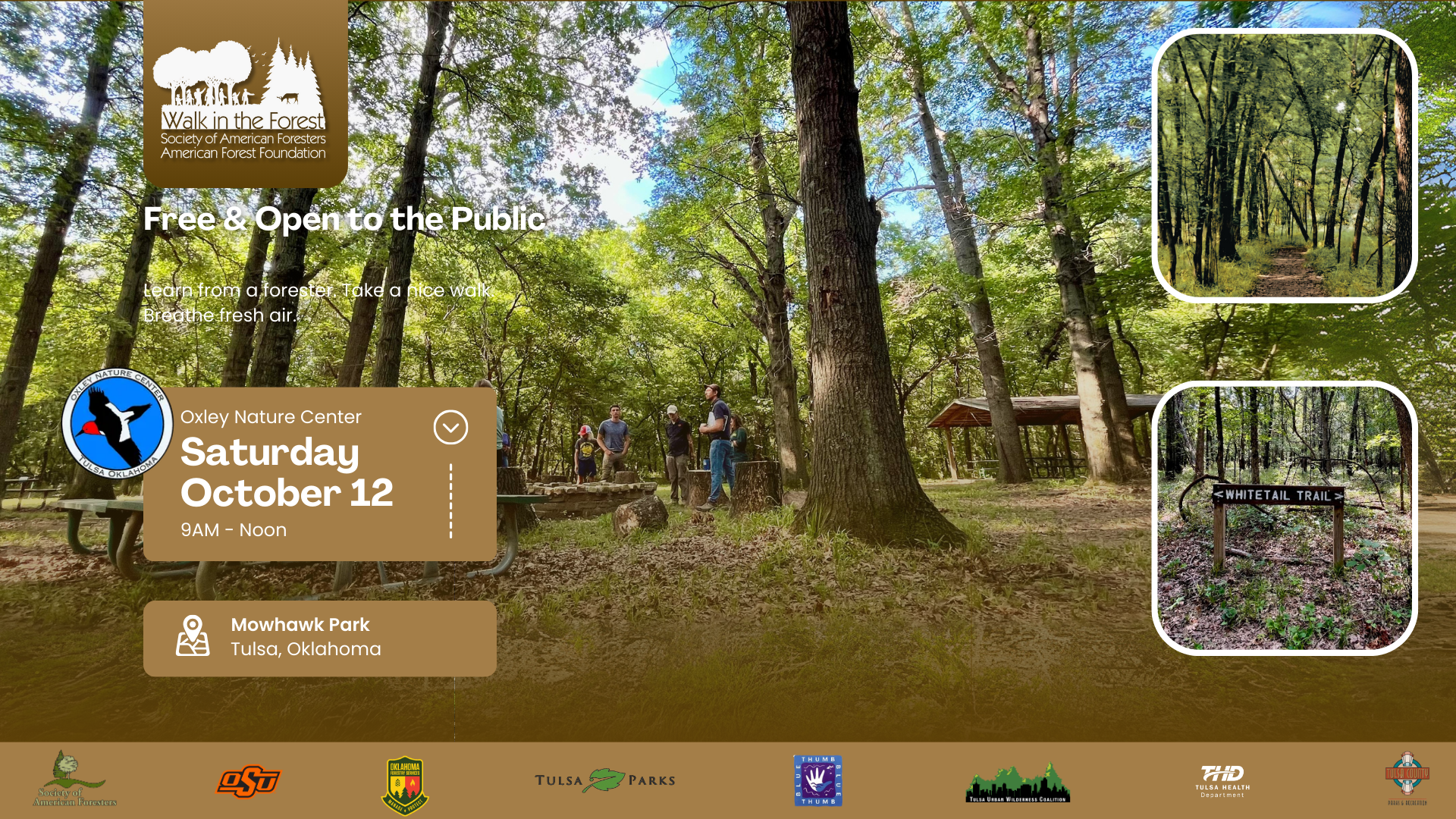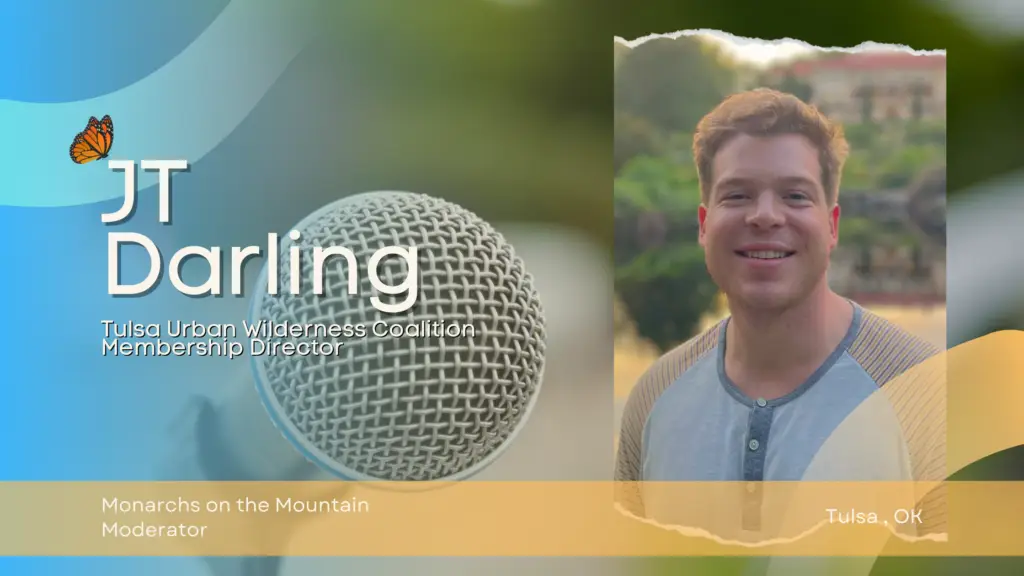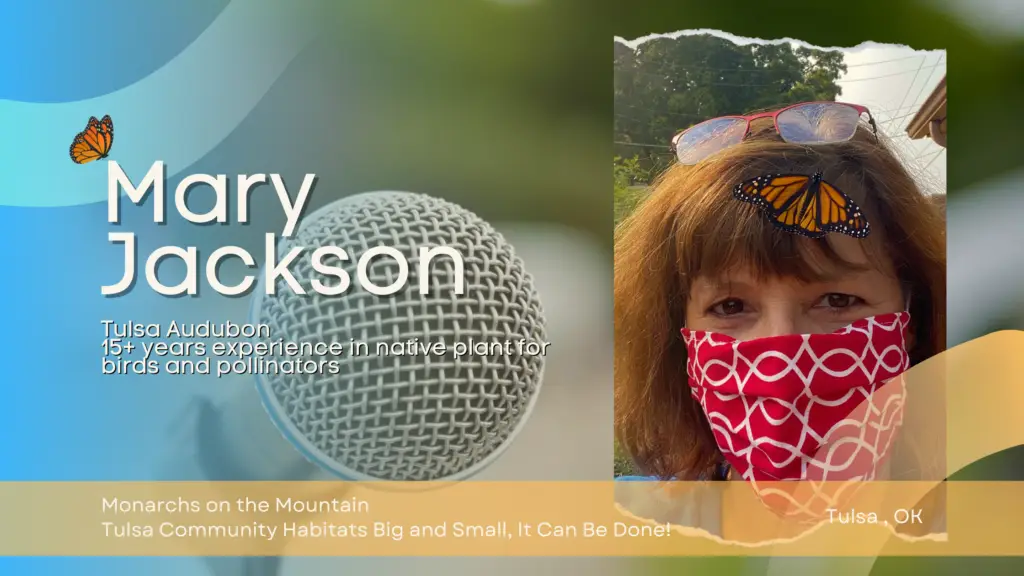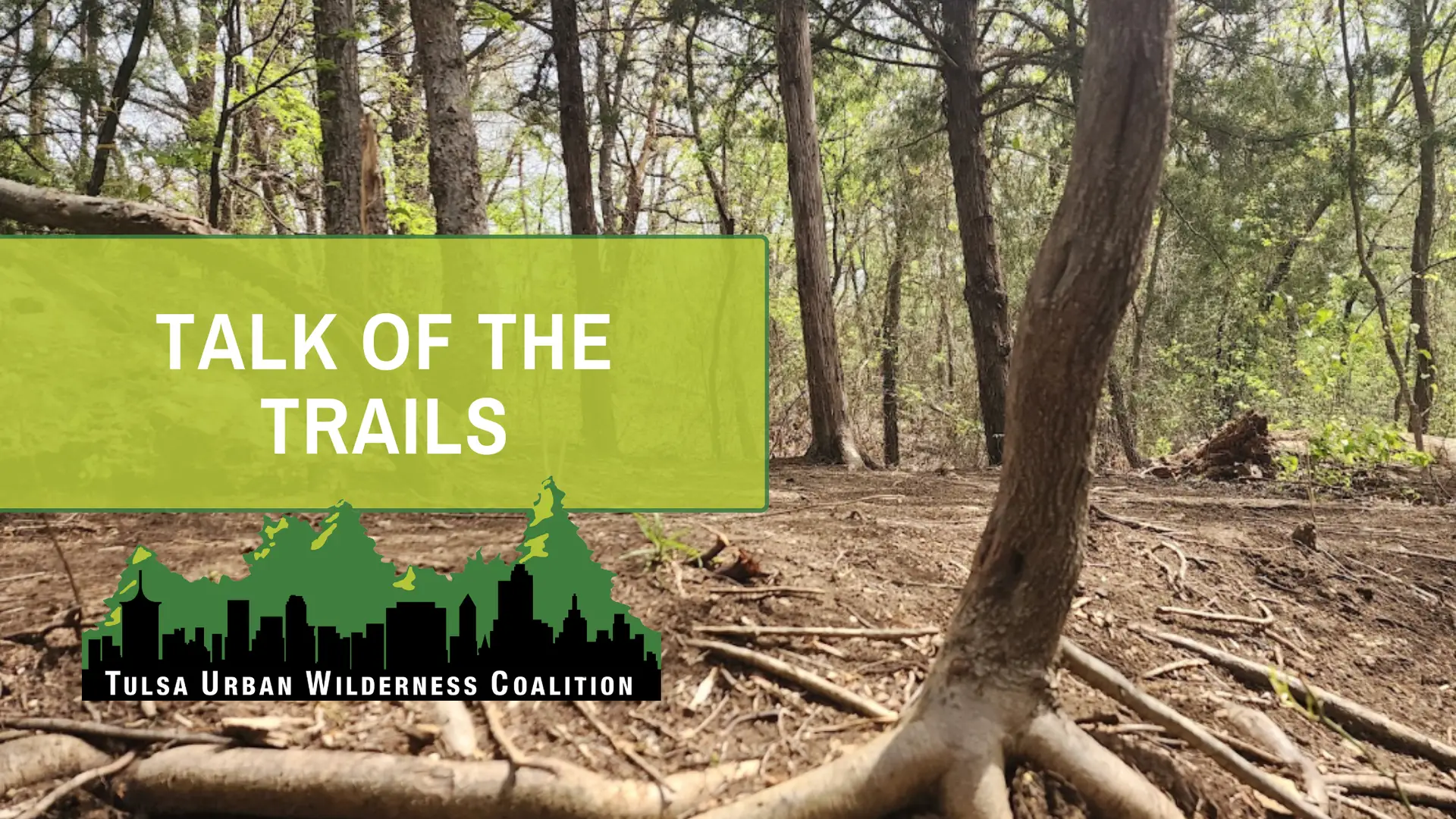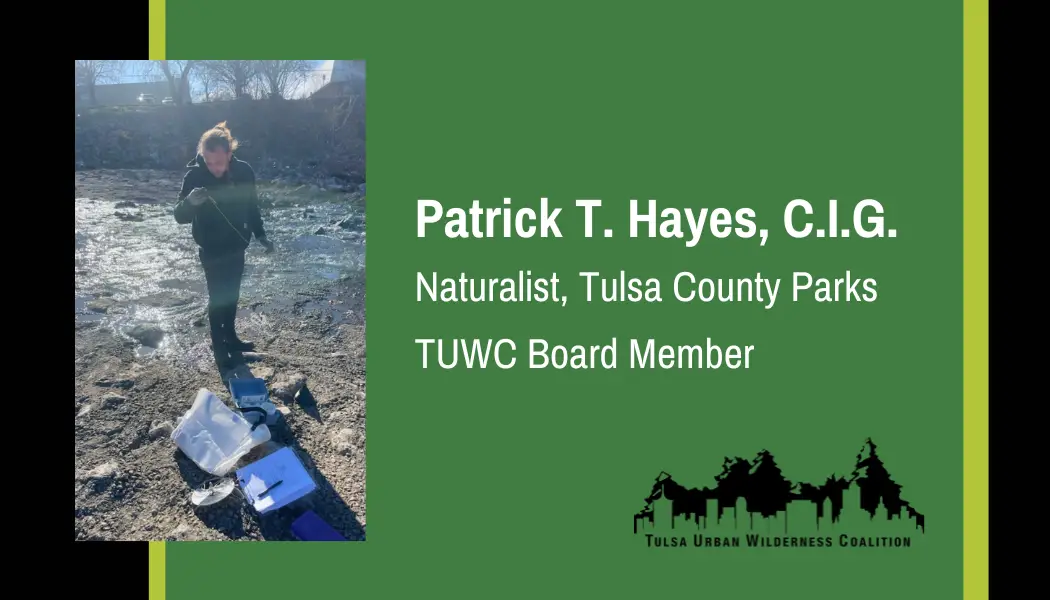
Spotlight on Education: Earth Day is Around the Corner!
Earth Day is rapidly approaching, and TUWC will be out and about for many earth day events around Tulsa. Although TUWC has excellent trail work days (Sunday, March 9th, 9am at Keystone Ancient Forest – mark your calendars!), we also educate the public about leave no trace principals, trail etiquette, and supporting pollinators. You can spot us at environmental fairs year-round, but especially at earth day events.
Already this year we’ve attended the 2025 Oklahoma Environmental Expo at the Oklahoma City Zoo, utilizing our Leave No Trace diorama to show our fellow outdoor recreators that staying on trail, not littering, and making sure to scoop up that doggy doo are all important tenants of maintaining the health of your urban wilderness.
Did you know that dog waste is not only a hazard for the bottom of your hiking shoes or bike tires, but also a cause of pollution in waterways? Dog waste contains nitrogen and phosphorus, which can deplete oxygen that fish and other water-based life need to survive. Water runoff from dog waste can also encourage the growth of harmful algae and, according to the U.S. Department of Agriculture, is considered a significant source of pathogens like fecal coliform, a disease-causing bacteria.
Although things like orange peels, apple cores, and dog waste may be organic materials that can break down in certain environments, disposing of them in your local urban wilderness can cause wild animals to depend on humans as a source of food and pollute our waterways. Leaving no trace means to leave the trail as if you were never there – preserving that trail magic for those that recreate after you!
Besides our March 9th trail & April 13 work day, TUWC has some exciting education events upcoming. You can find our education table at:
- Earth Day at Chandler Park – Friday, April 11
- Native Plant Sale Philbrook – Saturday, April 12
- Party for the Planet at the Tulsa Zoo – Saturday, April 19
- PSO Employee Earth Day Event – Tuesday April 22
- The M.E.T.’s Environmental Expo – Wednesday, April 23 (Earth Day!)
- Earth Day Event Ray Harlan Nature Park – Saturday April 26
We hope that you’ll join us at one of these events. Until then – see you outside!



